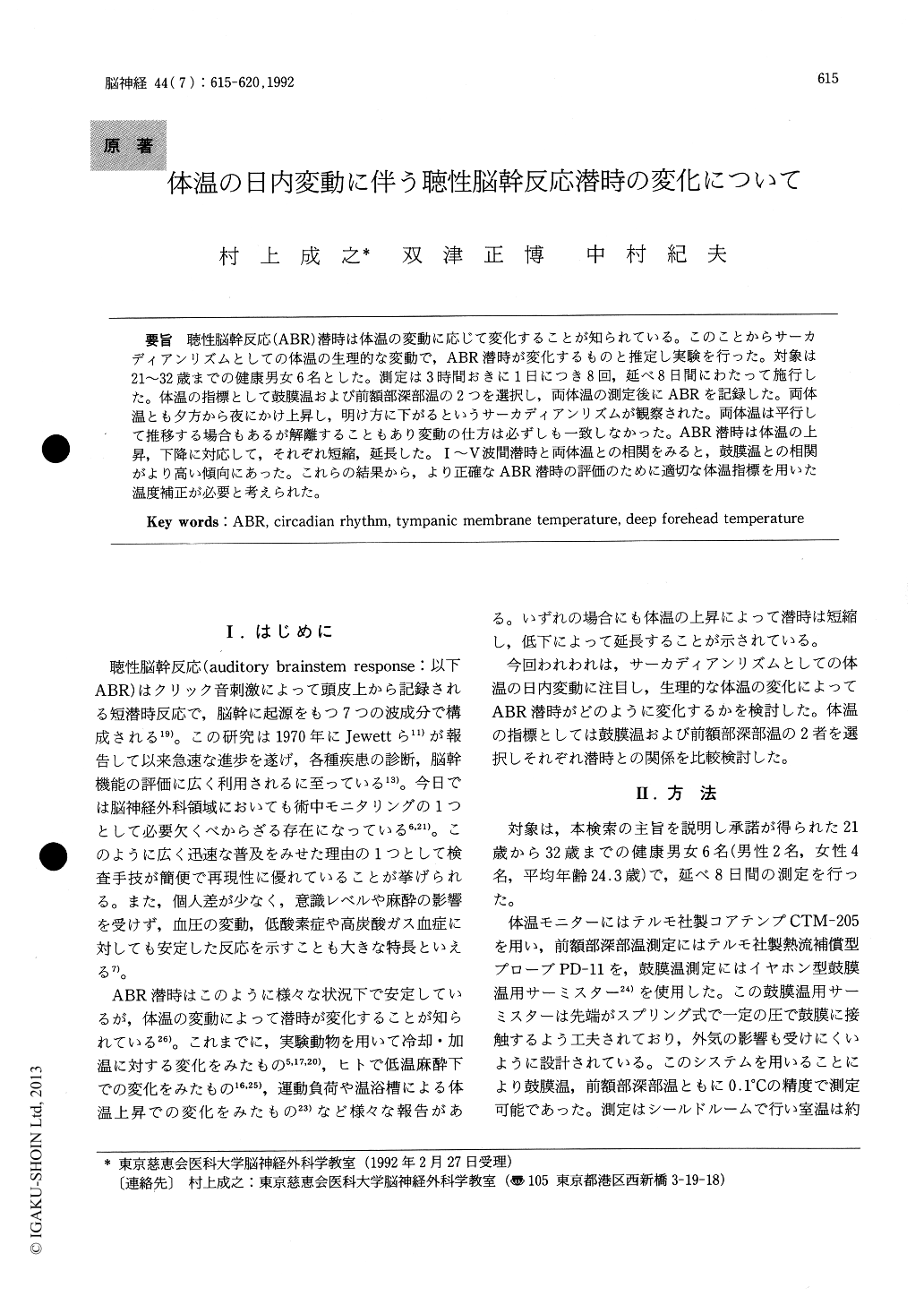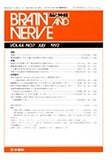Japanese
English
- 有料閲覧
- Abstract 文献概要
- 1ページ目 Look Inside
聴性脳幹反応(ABR)潜時は体温の変動に応じて変化することが知られている。このことからサーカディアンリズムとしての体温の生理的な変動で,ABR潜時が変化するものと推定し実験を行った。対象は21〜32歳までの健康男女6名とした。測定は3時間おきに1日につき8回,延べ8日間にわたって施行した。体温の指標として鼓膜温および前額部深部温の2つを選択し,両体温の測定後にABRを記録した。両体温とも夕方から夜にかけ上昇し,明け方に下がるというサーカディアンリズムが観察された。両体温は平行して推移する場合もあるが解離することもあり変動の仕方は必ずしも一致しなかった。ABR潜時は体温の上昇,下降に対応して,それぞれ短縮,延長した。I〜V波間潜時と両体温との相関をみると,鼓膜温との相関がより高い傾向にあった。これらの結果から,より正確なABR潜時の評価のために適切な体温指標を用いた温度補正が必要と考えられた。
The auditory brainstem response (ABR) has been found to reflect many pathological conditions within the auditory system and brainstem. And now, many neurosurgeons are using it to monitor the integrity of the auditory pathway during neurosurgical proce-dures. It is said that ABR shows little variation from person to person or laboratory to laboratory, nor is it easily affected by anesthesia, level of con-sciousness, fluctuation of blood pressure or hypox-emia. On the other hand, previous studies have shown that component waves of the ABR increase in latency and decrease in amplitude with lowered temperature. We reported here that naturally occur-ring circadian variations in body temperature were correlated with similar changes in the latency of the ABR.
Tympanic temperature (Tty), deep forehead tem-perature (Thd) and ABR were recorded every 3 hours during a 24-hour period for a total of 8 record-ing sessions from each of 6 healthy persons (2 males and 4 females, mean age 24.3 years). The subjects were free to come and go during the day but slept overnight in the laboratory.
All subjects had circadian variations in each tem-perature on the order of one degree. Thd had a tendency to fluctuate and its range of difference from Tty was -0.5~0.4℃, There was a more significant negative correlation between the latency of the ABR and Tty than that of Thd.
It has become apparent that ABR latency is affected by small temperature changes such as cir-cadian variation. The rate of a latency change in the ABR was 0.15msec per degree (C). Although the mechanisms underlying the correlation of body tem-perature and ABR latency are still unknown, some investigators suggest that temperature might affect ABR latency by retarding neuronal conduction or synaptic transmission at any points in the brain-stem. To this end, a precise measurement of temper-ature which adequately reflects the temperature of brainstem is important. We suggest that Tty indi-cates the nearest value to brainstem temperature, and Thd does not always show central nervous temperature correctly. Our data emphasize the importance of temperature in ABR research.

Copyright © 1992, Igaku-Shoin Ltd. All rights reserved.


